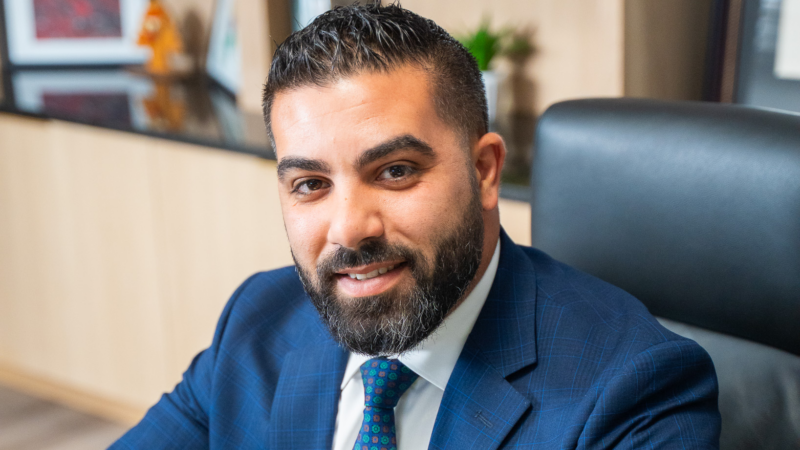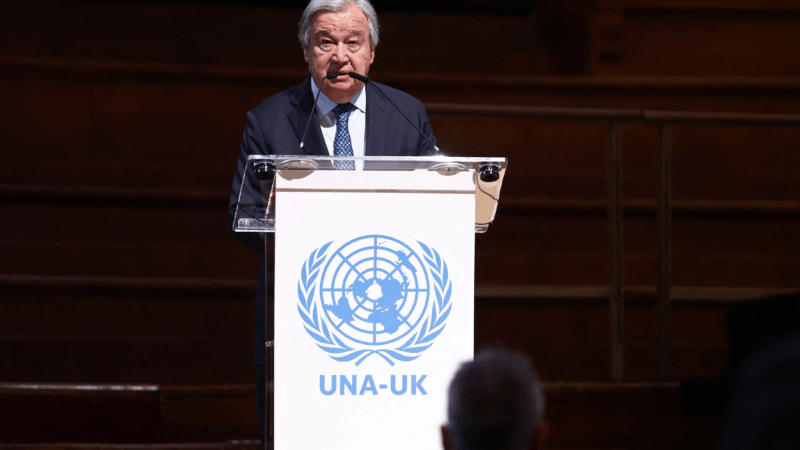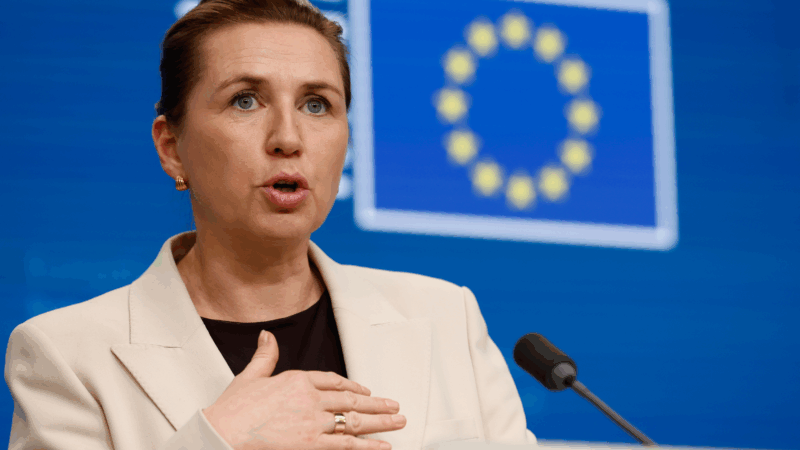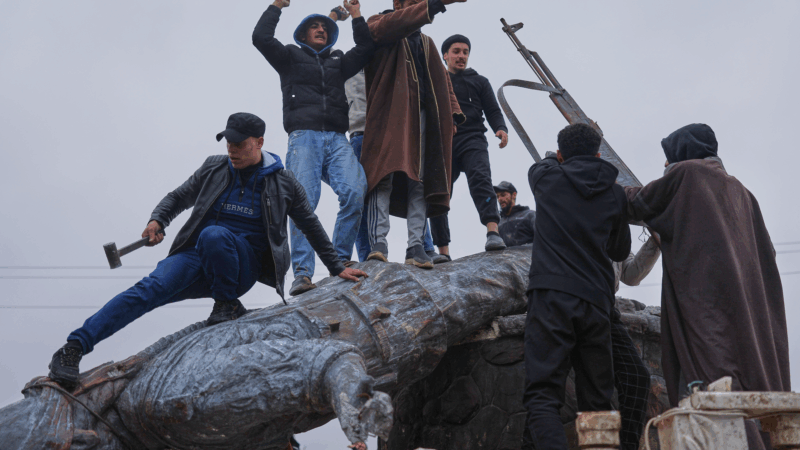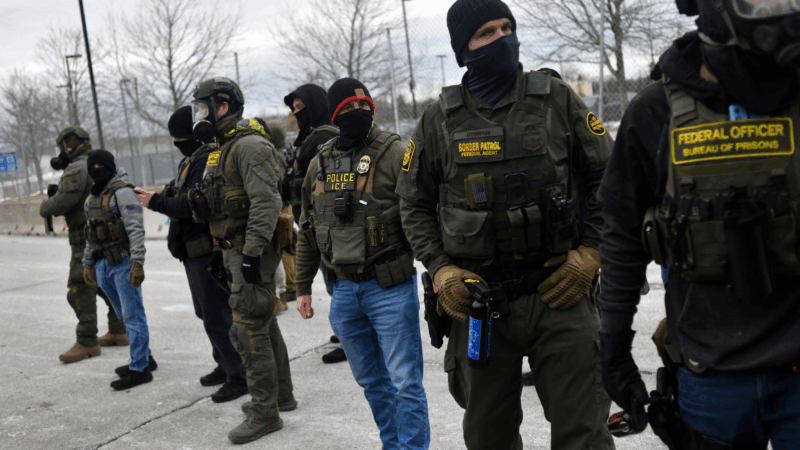Attorney representing a student protester detained by federal immigration agents
Earlier this week, Michigan-based attorney Amir Makled was detained by federal immigration agents while returning home from a family vacation to the Dominican Republic.
On Sunday at the Detroit Metro Airport, Makled — who is a U.S. citizen — attempted to pass through customs with his wife and children. The rest of his family was able to enter the country without issue. But when Makled’s turn came, he overheard one of the agents call for assistance from the “Tactical Terrorism Response Team.”
“My heart fell into my stomach at that point, I was so concerned and worried,” Makled told NPR.
Border agents pressured Makled to hand over his cell phone. He refused. After more than 90 minutes of back-and-forth, he eventually showed agents his contacts list. He was eventually released. Makled says he was never given a reason for his detainment.
However, one of his current clients is a student who has been charged in connection to a pro-Palestinian protest at the University of Michigan.
Makled does not think it’s a coincidence that he was targeted after deciding to represent this client following the Trump administration’s crackdown on visa holders who have expressed support for Palestine.
“The purpose of searching my phone doesn’t have anything to do with terrorism, there is only a chilling effect, and it’s done to be intimidating.”
NPR reached out to Customs and Border Protection, but has not yet received a response.
Makled sat down with All Things Considered host Juana Summers to describe his experience.
This interview has been lightly edited for length and clarity.
Interview Highlights
Juana Summers: Did you have any sense of why they wanted to see your phone? What did they tell you?
Amir Makled: Well, it was apparent to me at that point that they’d already done their homework about me before I arrived because they knew that I was taking on some some cases. [The agent] knew who I was and he knew where I was coming from. And he knew I was an attorney. So it wasn’t a random selection. They were prepared to talk to me and discuss things with me. And he was adamant that he wanted to see my phone.
Summers: What did you do then? Did you give him your phone?
Makled: No. At that point I said, ‘Listen, you know that I’m attorney. Everything in my phone could be privileged information. I have emails that go back over ten years. I have text messages with clients. I have all my court filings, and my office filings are in my cloud, which is available on my phone. You’re not getting full and unfettered access to my device. It’s not going to happen.’ And so that puzzled this agent and he had to go to a supervisor. Supervisor comes back and says, ‘Here’s a legal pad, here’s a pen. Write down everything that you believe is privileged. We won’t go through that.’ I looked at him with astonishment. How do you expect me to go through ten years or more of information that’s in my device and say, ‘This is privileged and this isn’t.’ It was a ridiculous conversation.
Summers: A CBP spokesman named Hilton Beckham told the Detroit Free Press, which you spoke to, that searches of electronic media have not gone up during the Trump administration. And “allegations that political beliefs trigger inspections or removals are baseless and irresponsible.” Your response?
Makled: I say to them, ‘What was the purpose of searching my device then?’ If you know that there’s there’s no probable cause, there’s no warrant, there’s no concern that I’m a threat to national security or anything of that nature? The purpose of searching my phone doesn’t have anything to do with terrorism, there’s only a chilling effect, and it’s done to be intimidating, in my opinion, for the causes that I was engaging in. I’m standing up for students. I’m standing up for immigrants and political dissenters. And I think this was a way to try to dissuade me from taking on these types of cases.
Summers: If this is part of a much broader effort to intimidate lawyers who work whose work runs counter to administration priorities. I want to ask you in the minute or so that we have left, is this working?
Makled: No, I think it’s doing the opposite effect. The outpouring of support that I have received from members of the Bar Association, not just in Michigan but nationally, and members of the community, is a showing that people are offended by this type of conduct. This is not what America is all about. We are a nation of laws. We have protections. We have amendments, the Fourth Amendment included, of your right to privacy, which includes not having your personal facts and papers searched. And it’s setting a terrifying precedent if government agents can target a lawyer at the border. What’s stopping them from doing it to anyone who dares to speak out?
High-speed trains collide after one derails in southern Spain, killing at least 21
The crash happened in Spain's Andalusia province. Officials fear the death toll may rise.
United Nations leaders bemoan global turmoil as the General Assembly turns 80
On Saturday, the UNGA celebrated its 80th birthday in London. Speakers including U.N. Secretary-General António Guterres addressed global uncertainty during the second term of President Trump.
Parts of Florida receive rare snowfall as freezing temperatures linger
Snow has fallen in Florida for the second year in a row.
European leaders warn Trump’s Greenland tariffs threaten ‘dangerous downward spiral’
In a joint statement, leaders of eight countries said they stand in "full solidarity" with Denmark and Greenland. Denmark's Prime Minister Mette Frederiksen added: "Europe will not be blackmailed."
Syrian government announces a ceasefire with the Kurdish-led Syrian Democratic Forces
Syria's new leaders, since toppling Bashar Assad in December 2024, have struggled to assert their full authority over the war-torn country.
U.S. military troops on standby for possible deployment to Minnesota
The move comes after President Trump again threatened to invoke the Insurrection Act to control ongoing protests over the immigration enforcement surge in Minneapolis.

